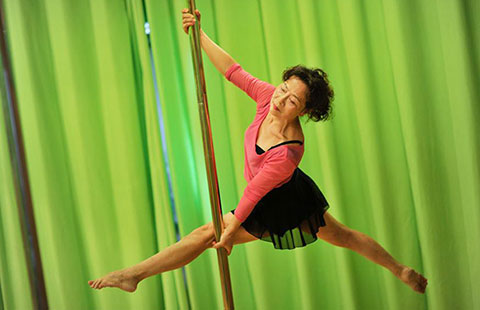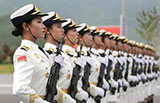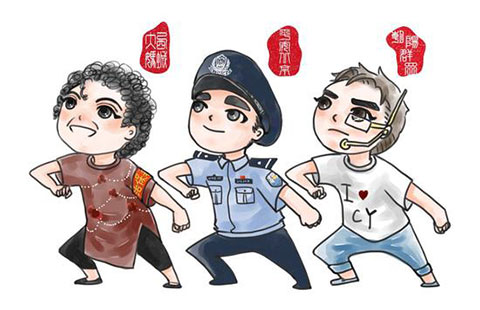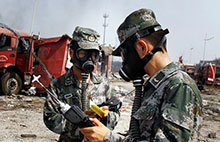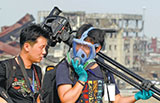Marathons set for race to the top
By Sun Xiaochen (China Daily) Updated: 2015-08-25 07:54Opening the door
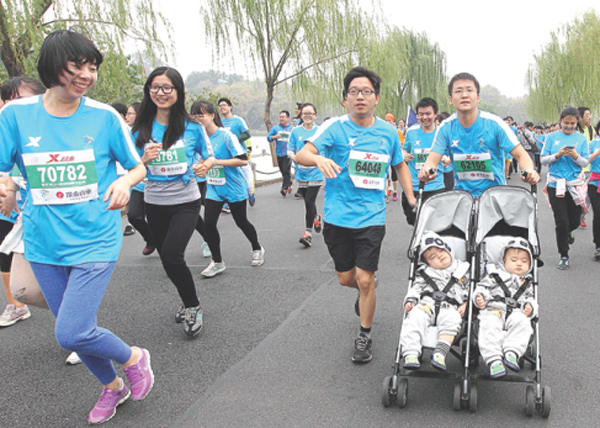 |
|
A man runs with his twin sons on the 2014 Hangzhou Marathon. XU KANGPING/CHINA DAILY |
The loosening of the State's grip has opened the door to a number of new players, including private companies, sporting goods manufacturers and NGOs, who want to organize or co-host marathons and related races.
To some extent, the process started in 2010, when China Olympic Road Running Co, an affiliated venture of the State-run China Sports Industry Group, began to assist the Beijing Municipal Sports Bureau in organizing China's oldest marathon, the Beijing Marathon, first run in 1981.
Meanwhile, Shanghai East Best & Lansheng Event Management Co, a service industry business, assumed responsibility for running last year's Shanghai International Marathon.
Adam Zhang, founder of Key-Solution, a sports marketing and consulting agency, said new operators face a number of challenges. "With so many players entering the field, the emphasis is on how to provide high-quality services for runners, media and sponsors, and how to make the race a special one that highlights local attractions through course design and relevant activities. These factors matter a lot to organizers who want to stay at the top of a highly competitive field," he said.
Song Hongfei, general manager of event operations at Wisdom, said organizing and managing a city marathon is physically and mentally demanding. In the three days before the starting pistol was fired at last year's Hangzhou Marathon, Song and his team had no time to sleep because they were so busy talking to local authorities by day-discussing issues such as traffic control, security, medical support and volunteer training-and erecting barriers to build the course at night.
Song's team also worked with the local urban planning department to arrange for tall plants and trees along the route to be trimmed to give TV viewers an unimpeded view. "TV broadcasting and media exposure are key to luring enough high-level participants and sponsors. Every detail counts," he said.
According to Zhang, it will take time for China's marathons to catch up with established international events in terms of media operations and the services provided for participants.
Moreover, lax organization has resulted in a number of embarrassing incidents at top events, such as the 2013 Beijing Marathon, when some of the male competitors were photographed urinating on the walls of the Palace Museum, leading to widespread criticism of the runners and complaints that the organizers had been negligent by failing to provide enough mobile sanitary facilities.
Commercial gold mine
Despite the immature infrastructure, the huge numbers of participants and extensive TV coverage have seen city marathons attract interest from businesses, in the sports sector and outside, who are keen to promote their brands through sponsorship, which has boosted event revenues.
Having successfully marketed four of the seven stages of the Season Run series as well as other major sporting competitions, Wisdom's sports event operations earned 107 million yuan ($16.7 million) in the first half of this year, a year-on-year rise of 50 percent, accounting for 40 percent of the company's revenue in the period.
According to a report in Southern Metropolis Daily, last year's Guangzhou Marathon generated marketing revenue of 80 million yuan, mainly from sponsors-including the Japanese automaker Toyota and the sports equipment brand Xtep-almost four times the cost of staging the event.
"Almost every running event we have operated in recent years has been profitable or, in the worst scenario, has broken even," said Sheng Jie, Wisdom's head of financial affairs.
Tan Jianxiang, a professor of sports sociology at South China Normal University in Guangzhou, said sponsors and advertisers are eager to exploit this new revenue stream. "Sponsoring marathons is a rewarding investment for companies, given the intense media exposure and the scale of the crowds attracted, not to mention post-event consumption at tourist sites and hotels."
According to the Municipal Bureau of Statistics in Xiamen, Fujian province, the 2014 Xiamen International Marathon generated about 261 million yuan for the local tourism industry.
Moreover, in addition to sponsoring events, some companies have also helped to organize them.
Last year, New Balance, the US sports clothing and footwear manufacturer, became an active partner of the International Management Group and helped to bring the Color Run, a global series of 5-km fun runs, to China.
"The Chinese athletics and lifestyle markets are where we are trying to position ourselves as a lifestyle brand. Running is part of that lifestyle, and everything is anchored on running so we need to maintain that as our core business," said Darren Tucker, the company's vice-president for the Asia-Pacific region.
Once the province of local governments and sports bureaus, marathons now offer an eye-catching marketing platform for a wide range of businesses, according to Ren of Wisdom.
"When an increasing number of non-sports enterprises, such as a brand of cooking oil, starts to tap into the (mass sports event) market, you know that a new dawn is coming for China's sports industry," she said.
Contact the writer at sunxiaochen@chinadaily.com.cn
- 'Double standards' criticized
- Prisoners in line to be granted special amnesties
- Targets set for new Beijing, Tianjin and Hebei megalopolis
- Path smoothed for organ donors
- Scientists ponder exoskeletons
- Beijing-Tianjin-Hebei development to see marked progress: official
- China releases organ donation guideline
- Xi calls for crews not to ease up
- Self-proclaimed Chinese qigong master arrested for illegal detention
- Online map aids visitors to capital
